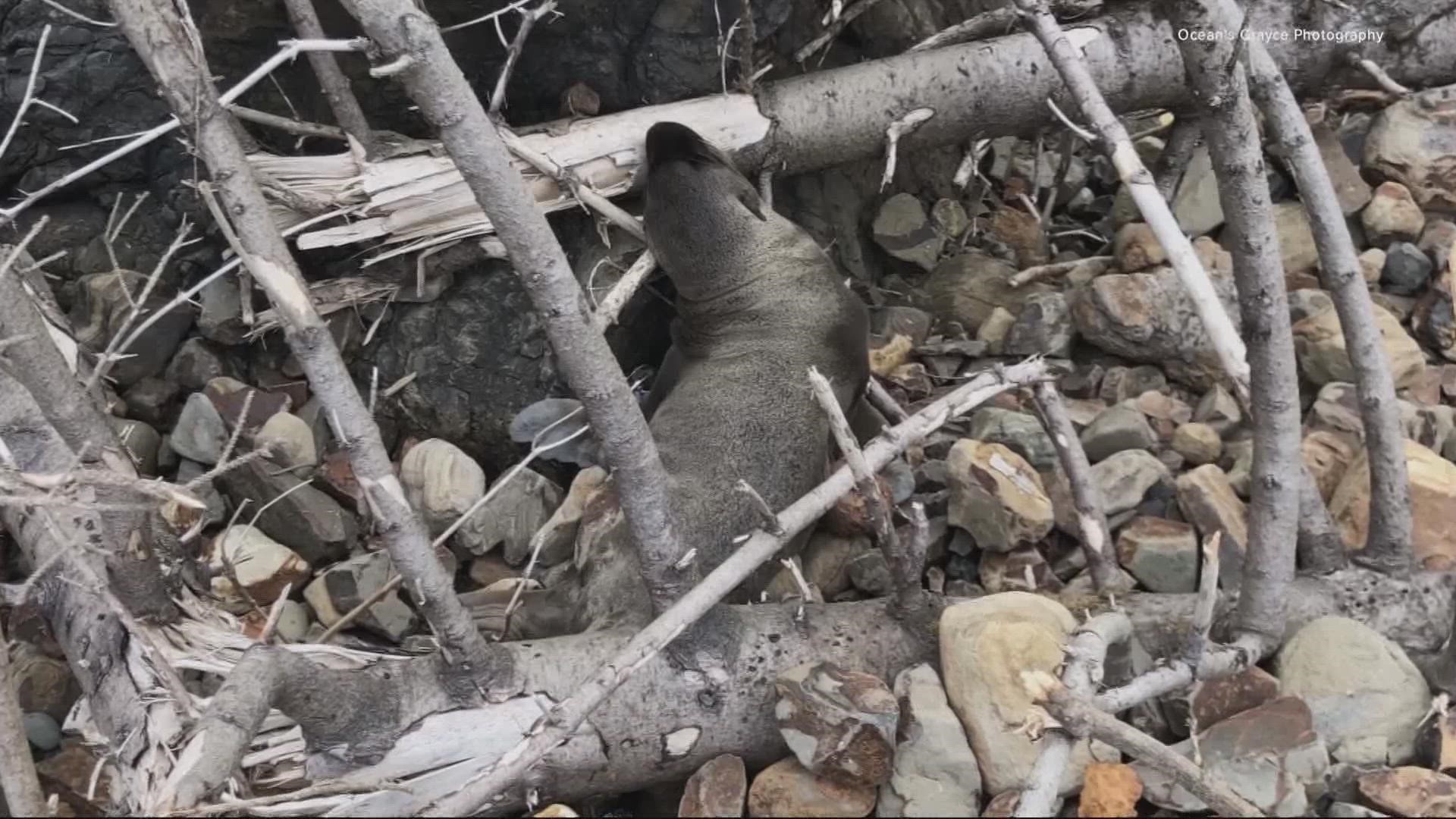CANNON BEACH, Ore. — After the recent death of an endangered sea lion pup along the Oregon Coast, environmental advocates are pointing to visitors who ignored state and federal laws.
In mid-June, Cannon Beach-area volunteers with Portland Audubon were conducting surveys of a dwindling bird species when they discovered a Steller sea lion pup along Indian Beach.
They alerted authorities, which erected signs warning beachgoers to avoid the pup since the mother was likely out fishing and would be back.
"Doesn't mean [the pup is] abandoned," explained volunteer and Cannon Beach resident Deb Atiyeh.
However, over the next five days, volunteers observed hundreds of beach visitors ignoring the signage and approaching the sea lion pup.
State and federal laws prohibit touching, feeding or disturbing marine mammals.
In this case, some beach visitors even tried to pull the sea lion pup back into the ocean.
"It's motivated by people's good intentions, but it's not the right thing for the animal," said volunteer Tabea Goossen.
"The best chance of survival is for the pup to be left alone," Atiyeh added.
Volunteers said the pup died about five days later from starvation and dehydration.
"Kind of broke my heart for a few days," Atiyeh said.
"This is not the time for a photo op or for a selfie," Goossen said. "Your responsibility is first of all, leash your dog, then back up and call the appropriate agency."
Violations of the law can be reported to Oregon State Police at 1-800-452-7888.
Meanwhile, Atiyeh said coastal towns like Cannon Beach have seen growing challenges as more visitors pour in. Garbage has stacked up on some popular beaches, with plastics impacting and sometimes killing local wildlife.
The city of Cannon Beach also banned fireworks to help cut down on trash and disruptive noise.
Volunteers said the sea lion pup's death was another reminder of the big impact small human actions can create.
"Our responsibility is to interact safely with the wildlife and follow the law," Goossen said.
"We want to keep [the beach] environmentally sacred," Atiyeh said. "If it's gone, it's gone."
RELATED: 13 Southern Resident killer whales declared 'vulnerable,' boaters asked to keep their distance

